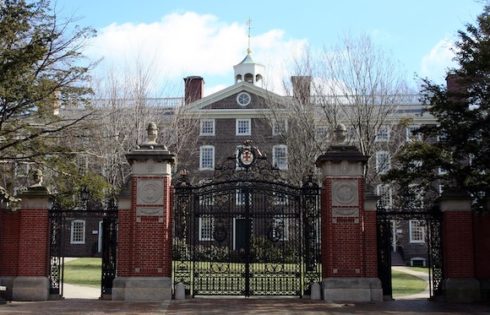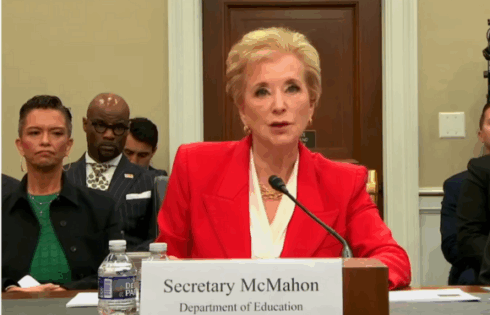
UPDATED
‘Despite the assurance that the third party vendor will delete data that it did not already have, there is … no mechanism to verify deletion,’ watchdog report argues
A voter data company that receives private student information from the National Student Clearinghouse as part of a nationwide study on college students’ voting trends is ignoring requests to discuss what it does with the student information.
The company, L2 Voter Data, has ignored multiple recent emails from The College Fix seeking answers and clarifications on what it does with the massive treasure trove of data points — students’ personal information — which more than 1,000 universities willingly hand over through a contested loophole in the Family Educational Rights and Privacy Act, or FERPA.
L2, which sells voter information, lists a Washington state address but no phone number on its website. After obtaining the phone number through an investigator, The College Fix listened to a message telling callers it’s better to email them instead. On Monday, an employee hung up on a College Fix reporter seeking information or a person to interview.
According to a description by UC Berkeley, “L2 Voter Data supports research into voter behavior and demographics, by providing detailed demographic profiles, historical voting records, party affiliation data, and geospatial analysis tools. L2 Voter Data is a regularly updated database of all registered voters in the US, and contains voting records going back, in some cases, to 2001.”
L2 describes itself online as “working with clients from presidential campaigns to small advocacy organizations” with an “easy-to-use web-based interface [that] gives you the power to instantly analyze, purchase and export records.”
Universities nationwide allow their students’ private information to be handed over to L2 every year as part of a project launched during the Obama administration and hosted at Tufts University.
Called the National Study of Learning, Voting and Engagement, universities that participate in the NSLVE study authorize the National Student Clearinghouse to release students’ FERPA data to a “third party vendor,” which is L2, a university spokesperson has confirmed to The Fix.
Privacy watchdogs have voiced concern that Tuft’s study is using wrongfully obtained student information. FERPA, which gives students the right to protect their information, contains a “study exception.” The exception allows the release of their personally identifiable information if it is used to “improve instruction.”
 Operating under this reading of the exception, more than 1,000 universities sign an authorization form permitting the clearinghouse to release information to L2.
Operating under this reading of the exception, more than 1,000 universities sign an authorization form permitting the clearinghouse to release information to L2.
Some argue the data is not really going toward improving student instruction at all, so it should not be released under FERPA. But another concern is what L2 then does with all the personal student information, such as whether they delete it or possibly retain it for some other use.
The National Student Clearinghouse insists the student data is deleted by L2 and everything is above board with the process.
“Institutions that choose to participate in NSLVE sign an authorization form permitting the Clearinghouse to provide student names, addresses and dates of birth to a voter organization to match to that organization’s voter registration data,” a clearinghouse media relations official told The College Fix in a statement. “The matched dataset is then sent to the Clearinghouse, and the organization destroys the data it received from the Clearinghouse.”
“The Clearinghouse then combines the matched dataset with Clearinghouse data, such as the student’s postsecondary educational institution, enrollment status and major, de-identifies it, and sends this de-identified data to Tufts,” the spokesperson continued.
“Tufts then prepares the aggregate reports to institutions. The process is conducted with the permission of institutions in compliance with the Family Educational Rights and Privacy Act (FERPA), and the voter organization destroys the institution’s data once it is no longer needed for NSVLE purposes.”
The study launched in 2012 after the Obama administration called for Democrats to assemble “the perfect list” of targetable voters for get-out-the-vote efforts, according to a 2023 report by Verity Vote, a group concerned with government transparency and election integrity.
“The sharing of directory and non-directory data shared with the third party vendor has no legally authorized purpose and appears to violate FERPA “ the report states.
“Despite the assurance that the third party vendor will delete data that it did not already have, there is no FERPA exemption for temporarily receiving and manipulating the data. There is also no mechanism to verify deletion of the NSC data from the vendor’s database.”
Heather Honey, an investigator with Verity Vote, told The College Fix in a recent interview: “Students who are registered to vote will be available in the public voter files. The students who are unregistered are much harder to identify. L2 could potentially buy data from commercial data aggregators, or companies like Netflix or Uber Eats to try to create a list of unregistered students at a particular university. That list will only be a partial list. The National Student Clearinghouse has the complete list of all students. L2 and Catalist cannot buy that FERPA protected enrollment data from the Student Clearinghouse – it is not for sale.”
What’s more, up until 2018, when Tufts switched to L2, the vendor Tufts used was Catalist, the Democrat’s exclusive voter data provider.
Honey told The Fix the study exception does not apply in the context of research for the NSLVE because the final reports in the studies “include zero information about instruction.”
“The campaign or the party with the best data, they’re going to win. It’s an advantage and it’s not even competitive,” Honey said.
Editor’s note: This post has been amended to clarify a quote.
IMAGE: Songs About Summer / Shutterstock
Like The College Fix on Facebook / Follow us on Twitter





Please join the conversation about our stories on Facebook, Twitter, Instagram, Reddit, MeWe, Rumble, Gab, Minds and Gettr.